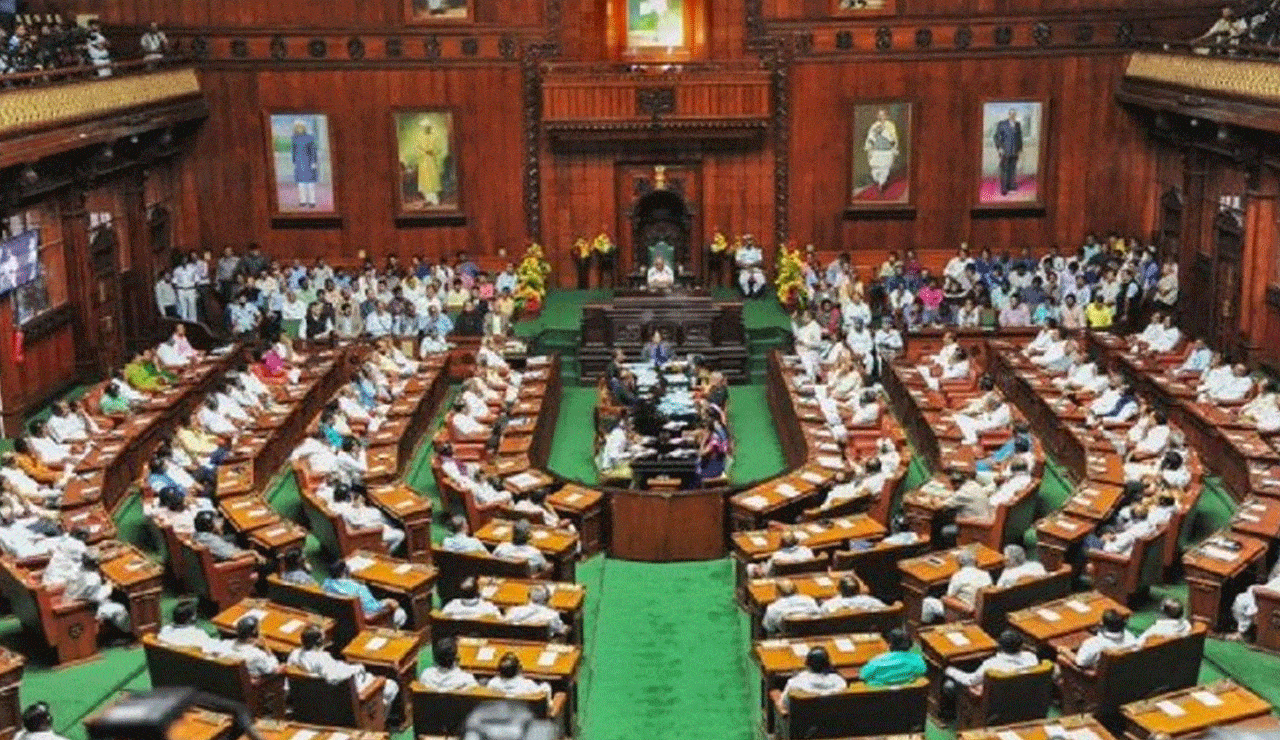Rajya Sabha Adjourned Amid Clash Over Muslim Reservation in Karnataka
The Rajya Sabha faced chaos on Monday, 24th March 2025, as opposition and ruling party members clashed over the Karnataka government’s proposal to grant reservations to Muslims under the OBC category.

The Rajya Sabha faced chaos on Monday, 24th March 2025, as opposition and ruling party members clashed over the Karnataka government’s proposal to grant reservations to Muslims under the OBC category. Proceedings were adjourned until 2:00 PM following a heated exchange, marking a critical moment in India’s ongoing debate on affirmative action.
Table of Contents
Key Highlights of the Session
- BJP’s Opposition: Union Minister Kiren Rijiju accused Karnataka Deputy CM D.K. Shivakumar of advocating “unconstitutional measures” by suggesting amendments to the Constitution to accommodate religion-based quotas.
- Congress’s Defense: Leader of Opposition Mallikarjun Kharge emphasized the need for equitable representation, stating, “Reservation addresses socioeconomic backwardness, not religion.”
- Adjournment: Chairman Jagdeep Dhankhar suspended the session amid slogan-shouting from both sides.
Why Muslim Reservation in Karnataka Sparked a Constitutional Debate
The Karnataka government’s proposal to allocate 4% reservation for Muslims under the OBC category has intensified tensions between political parties. While the Congress argues the policy targets “economically backward sections within minorities,” the BJP insists it violates constitutional principles.
Also Read: Will Telangana’s Indiramma Housing Promise Reach Every Poor Family?
BJP’s Stand: “No Religion-Based Quotas”
- JP Nadda, BJP President, cited Dr. B.R. Ambedkar’s stance: “Reservation cannot be religion-specific.”
- Criticized the move as “electorally motivated,” accusing Congress of “undermining Ambedkar’s legacy.”
Congress Counters: “Inclusive Development”
- Deputy CM Shivakumar clarified the quota focuses on “backward classes, not all Muslims.”
- Mallikarjun Kharge highlighted the Bharat Jodo Yatra as proof of Congress’s commitment to safeguarding constitutional values.
Why This Matters
The dispute over Muslim reservation in Karnataka reflects a broader national divide on affirmative action. With 14% of Karnataka’s population being Muslim—many of whom face educational and economic disparities—the policy aims to bridge gaps in representation. However, critics argue it risks polarizing communities.
Constitutional Experts Divided
- Supporters cite Article 15(4), allowing special provisions for socially and educationally backward classes.
- Opponents reference the Indra Sawhney Judgment, which caps reservations at 50% and bars religion as a criterion.
What’s Next for Karnataka’s Reservation Policy?
- Legislation: The Karnataka government plans to table the bill after legal consultations.
- Protests: Hindu OBC groups demand a caste census, complicating the state’s reservation matrix.
- Judicial Review: The Supreme Court may ultimately decide the policy’s validity.
As Parliament reconvenes, the Muslim reservation in Karnataka debate remains unresolved. With political rhetoric escalating, the issue underscores India’s challenge in balancing social justice with constitutional integrity.
Key Takeaways
- Karnataka’s Muslim reservation debate centers on constitutional morality vs. inclusive growth.
- BJP and Congress remain locked in a ideological clash over religion-based quotas.
- Legal and political battles will shape the future of affirmative action in India.
Stay Informed with Munsif
For unbiased updates on this evolving story and expert analyses, follow Munsif—your trusted source for breaking news.
